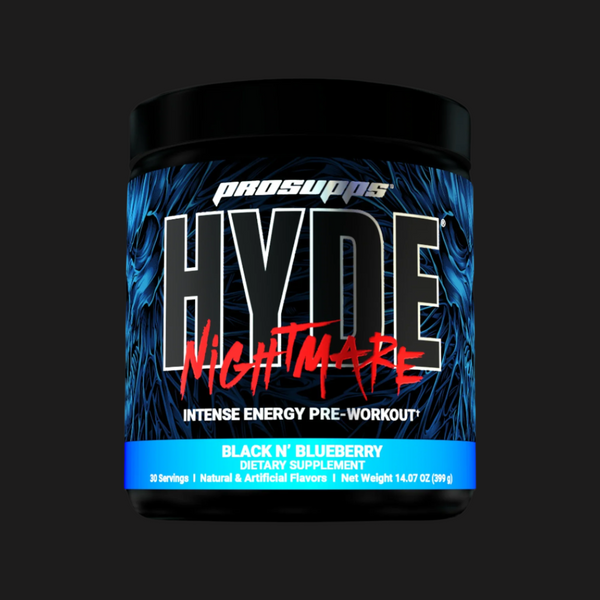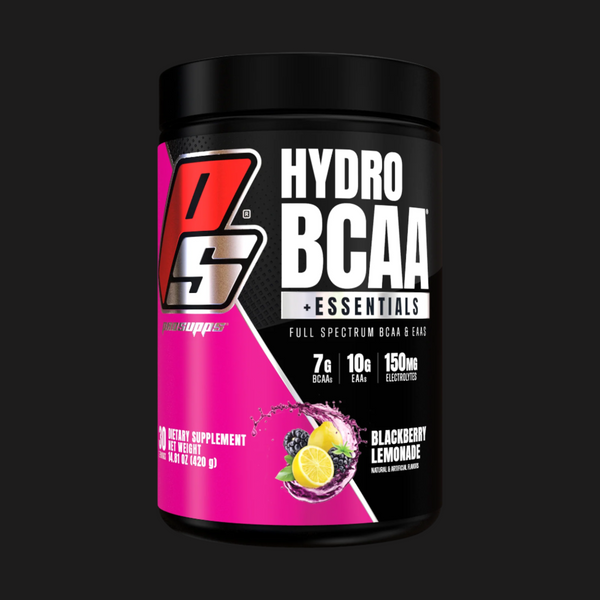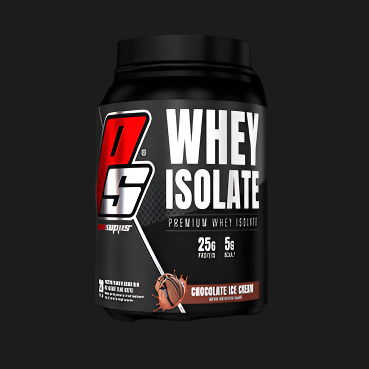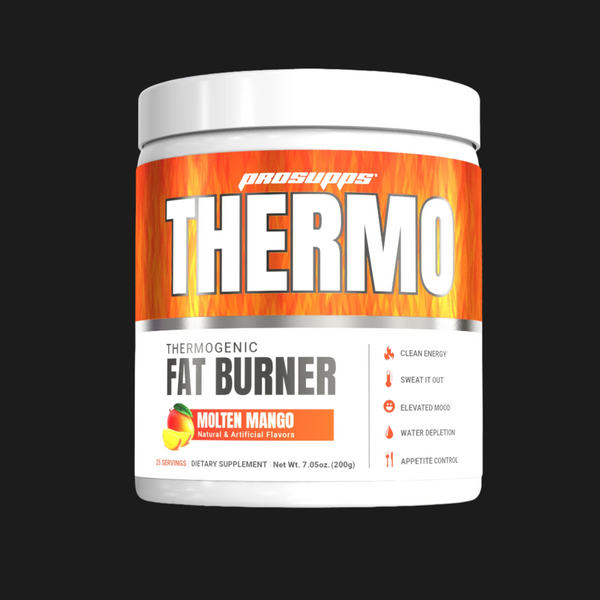
What are BCAAs? And Why Should You Care?
 Written by Guy Gustafson
Written by Guy Gustafson June 23, 2021
Shopping for supplements can be so confusing. Half the time, you can’t even be sure what you’re buying!
For example, what are BCAAs? What do those letters stand for? Why do you need them in your supplement routine?
Read on for answers to these and other pressing BCAA questions.
What Are BCAAs?
Let’s clear up the easiest question first. What are BCAAs? Before we can answer this question, we need to talk about Essential Amino Acids (also known as EAAs).
Branched-Chain Amino Acids are a subgroup of EAAs. There are 9 Essential Amino Acids (out of 20 total amino acids, all of which are build blocks of different proteins in the body):
- Histidine
- Tryptophan
- Phenylalanine
- Methionine
- Lysine
- Threonine
- Leucine
- Isoleucine
- Valine
Essential Amino Acids get their description from the fact that the body isn’t able to make them on its own. To maintain good health and help your body function properly, you need to get them through food or supplements.
Of the 9 Essential Amino Acids, 3 are known as Branched-Chain Amino Acids (Leucine, Isoleucine, and Valine). These amino acids get their name from their unique, branched molecular structure. They’re best known for their muscle-building and recovery-boosting benefits.
You can buy BCAA supplements that also contain other Essential Amino Acids. You can also buy supplements that just contain the 3 BCAAs.
What BCAAs Do for the Body
You know that BCAAs (and all EAAs, for that matter) are necessary for optimal health. What do BCAAs do for the body, specifically, though?
Here are some of the top benefits they can provide:
More Efficient Muscle Building
We all know how hard it is to build muscle, especially if you’ve been lifting consistently for a while (wouldn’t it be nice to always have newbie gains?).
Fortunately, BCAAs can help you to overcome this issue and build muscle more easily. This is because they (specifically, Leucine) activate the pathway that stimulates muscle-protein synthesis.
One study also revealed that, in addition to supporting increases in lean muscle mass, BCAAs could aid in reducing body fat.
The 8-week study followed 36 males who had been resistance training regularly for at least 2 years. During the study, some participants received BCAAs, others received whey protein, and the third group received carbohydrates in the form of a sports drink.
At the end of the study, researchers learned that those who received BCAAs experienced the most significant decrease in body fat while also experiencing the greatest increase in lean muscle mass.
Better Post-Workout Recovery
Branched-Chain Amino Acids can improve post-workout recovery and reduce muscle soreness, too. This can be great for those who exercise frequently and have a hard time getting back into the gym because they’re sore after difficult workouts.
One study found that those who supplemented with BCAAs experienced less muscle damage from high-intensity exercise compared to those who did not. Another study found lower levels of substances in the blood that indicate muscle damage in those who took BCAAs.
Less Muscle Loss
In addition to increasing muscle-building potential, BCAAs can help you to avoid muscle loss, too. You’ve worked hard for your muscle mass. You don’t want to lose it, do you?
If you do a lot of fasted exercising or are in a calorie deficit, it’s especially important to include BCAAs in your routine. Both of these situations can increase your chances of losing muscle, which will also slow down your metabolism and make it harder for you to lose fat in the future.
Increased Energy and Endurance
If you struggle with fatigue and a lack of endurance while exercising, BCAAs can help.
When you’re exercising, your muscles use the BCAAs in your bloodstream for energy. When this happens, levels of other EAAs like tryptophan increase.
As tryptophan increases, serotonin levels go up, which causes you to feel fatigued. If you supplement with additional BCAAs, you can delay the rise of tryptophan and reduce fatigue during your workout.
Keep in mind, you can further reduce fatigue and increase your endurance while exercising with a BCAA supplement that includes caffeine. Energy-boosting BCAA supplements allow you to kill two birds with one stone and maximize the benefits you see during your workouts (without having to take multiple supplements).
What Are the Benefits of BCAAs and Glutamine?
BCAAs, by themselves, offer plenty of benefits. What are the benefits of BCAAs and glutamine combined, though?
Some research shows that BCAAs can be more effective when they’re taken alongside a glutamine supplement.
Should you take these two products together? Let’s explore and find out:
What Is Glutamine?
Glutamine is a non-essential amino acid. Your body can make it on its own, but additional supplementation can be beneficial, especially when it comes to post-workout recovery and immune system support.
Benefits of BCAAs and Glutamine
If you’re looking to make more gains or maintain muscle mass, combining BCAAs and glutamine may be a good option. This is because both BCAAs and glutamine help to prevent muscle loss.
If you’re dieting and want to avoid losing muscle, consider taking BCAAs and glutamine together. This helps you to get more beneficial amino acids and provide your muscles with the nutrients they need.
What Is the Ideal Serving of BCAAs?
Okay, you understand that BCAAs can be beneficial. What’s the ideal BCAA serving size, though? How many milligrams should you take to see the best results?
Most quality BCAA supplements contain 7g (0.24 ounces) of BCAAs per serving. This is an effective dose for most people. Keep in mind that, in addition to the total number of grams per serving, you should also factor in the ratio of BCAAs in your supplement.
Ideally, your supplement will contain BCAAs in a 2:1:1 ratio of Leucine to Isoleucine and Valine. For example, if you have a supplement with 7 total grams of BCAAs, it would contain 3.5 grams (0.12 ounces) of Leucine and 1.75 grams (0.06 ounces) each of Isoleucine and Valine.
How to Choose the Right BCAA Supplement
When shopping for a BCAA supplement, a good starting point is to make sure you’re choosing one that contains an optimal dose of BCAAs in each serving. There are some other factors to keep in mind, though, including the following:
Supplement Type
The most common type of supplement is one that just contains BCAAs or BCAAs and EAAs. However, you can find other supplements that also provide you with BCAAs, such as pre-workouts.
Take note of which kind of supplement you’re buying to ensure it provides you with the ideal amount and type of amino acids you need.
Ingredients
Beyond BCAAs and EAAs, consider the other ingredients in a supplement before you buy it.
For example, does it contain caffeine or other stimulants? Does it contain sugar or carbohydrates? What about potential allergens like gluten?
Testing
Is your BCAA supplement Informed Choice certified and banned substance tested? This is a good checkpoint for those who are competitive athletes and need to make sure they’re not taking anything that could get them disqualified.
Reviews
What do past customers have to say about the supplement you’re thinking about buying? Are they happy with it? Have they noticed good results from it? Would they buy it again?
Try BCAAs Today
After reading through this information, you can answer questions like “What are BCAAs?” and “Why do BCAAs matter?” with ease. With these details in mind, do you think that you could benefit from BCAAs?
If you’re interested in trying BCAAs, don’t just go out and buy any old supplement. Make sure you’re using safe, high-quality, Informed Choice certified products.
At ProSupps, we have a wide range of products for you to choose from. Head to our store today to check them out.
GET LEAN
 Why You're Struggling
Can't Lean Out? Here's Why You're Struggling
Why You're Struggling
Can't Lean Out? Here's Why You're Struggling
We all know the feeling. You’ve been working hard in the gym, sticking to your diet and getting in your...
 Weight Loss
Choosing the Best Protein Powder for Weight Loss
Weight Loss
Choosing the Best Protein Powder for Weight Loss
Struggling to shed body fat and lean out? You might need to focus more on your nutrition, specifically your protein...
 Weight Loss
9 Ways to Speed Up Your Weight Loss and Burn More Fat
Weight Loss
9 Ways to Speed Up Your Weight Loss and Burn More Fat
Weight loss is a major goal for more than 40 percent of Americans. Is it something you’re working toward, too?
 Workout Routine
10 Tips for Building a Sustainable Workout Routine
Workout Routine
10 Tips for Building a Sustainable Workout Routine
Starting a fitness journey is an exciting time, but maintaining a sustainable workout routine can be challenging. From setting realistic...



























